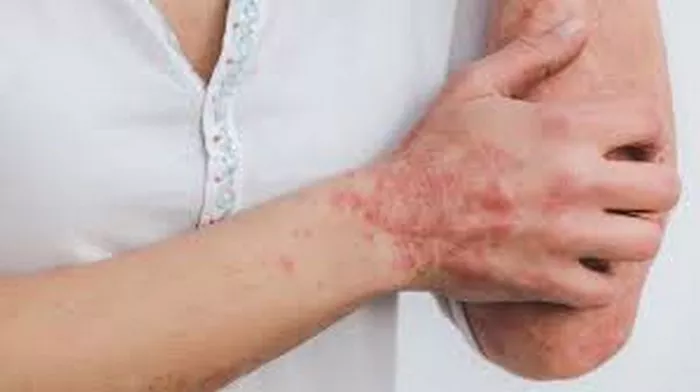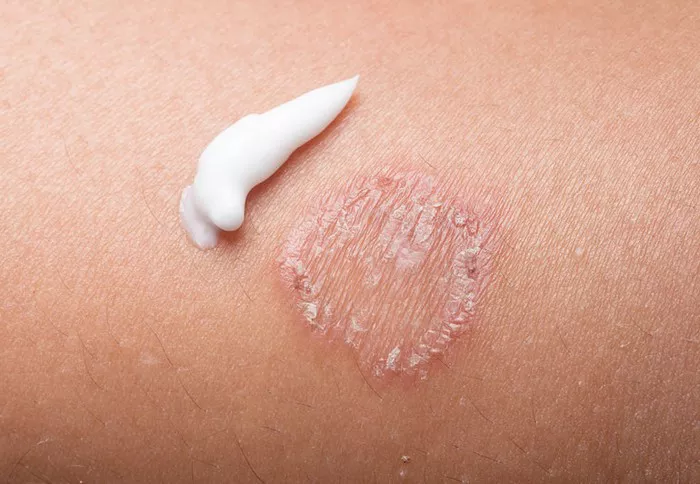Psoriasis is a chronic skin condition characterized by the rapid growth of skin cells, leading to the formation of thick, red, and scaly patches. It affects millions of people worldwide, impacting their physical and emotional well-being. While psoriasis is a persistent condition, advancements in medical research have paved the way for faster and more effective treatments. In this article, we will explore the various aspects of psoriasis, its impact on individuals, and delve into the latest advancements in fast and efficient treatment options.
Understanding Psoriasis
Psoriasis is an autoimmune disorder where the immune system mistakenly attacks healthy skin cells, causing an accelerated production of new cells. This results in the formation of raised, red, and often itchy patches, commonly found on the elbows, knees, scalp, and lower back. The severity of psoriasis can vary from mild, with small, localized patches, to severe, covering large areas of the body.
The exact cause of psoriasis is not fully understood, but genetic and environmental factors are believed to play a significant role. Triggers such as stress, infections, and certain medications can exacerbate symptoms, making it essential for individuals to manage their condition with a holistic approach.
The Impact of Psoriasis on Quality of Life
Living with psoriasis can be challenging, both physically and emotionally. The visible nature of the skin lesions can lead to self-consciousness, social isolation, and a diminished quality of life. Beyond the physical discomfort, individuals with psoriasis often face psychological distress, including anxiety and depression. Therefore, finding fast and effective treatment options is crucial not only for managing the physical symptoms but also for improving overall well-being.
Conventional Treatments: A Historical Perspective
Over the years, various treatments have been employed to alleviate psoriasis symptoms. Topical corticosteroids, phototherapy, and oral medications have been the mainstay of conventional treatments. While these approaches have shown efficacy, they may take weeks or even months to exhibit noticeable improvements, leaving patients searching for faster relief.
Emerging Biologic Therapies: A Breakthrough in Fast Psoriasis Treatment
In recent years, the advent of biologic therapies has revolutionized the treatment landscape for psoriasis. Biologics are genetically engineered proteins derived from living cells that target specific components of the immune system involved in the development of psoriasis. Unlike traditional treatments, biologics act quickly, often providing relief within weeks.
One notable biologic is adalimumab, which inhibits tumor necrosis factor-alpha (TNF-alpha), a cytokine involved in the inflammatory response. Clinical studies have shown that adalimumab can significantly reduce psoriasis symptoms, offering a fast and sustained improvement in skin lesions.
Targeted Therapies: Precision Medicine for Psoriasis
Targeted therapies represent another innovative approach to psoriasis treatment. By specifically targeting key molecules involved in the immune response, these therapies aim to provide faster relief with fewer side effects compared to traditional treatments.
One such targeted therapy is ustekinumab, which blocks the action of interleukin-12 (IL-12) and interleukin-23 (IL-23). These cytokines play a crucial role in the inflammatory process underlying psoriasis. Clinical trials have demonstrated the rapid and sustained efficacy of ustekinumab, making it a promising option for those seeking fast relief.
The Role of Lifestyle Modifications
While pharmaceutical advancements have significantly improved the speed and efficacy of psoriasis treatment, lifestyle modifications remain an integral part of holistic management. Patients are encouraged to adopt healthy habits such as maintaining a balanced diet, regular exercise, and stress management to complement medical interventions.
Dermatologists often recommend avoiding trigger factors, such as certain foods and environmental stressors, which may exacerbate psoriasis symptoms. Additionally, moisturizing the skin regularly and using mild, fragrance-free skincare products can contribute to overall skin health.
Integrative Approaches: A Holistic Path to Fast Psoriasis Relief
In addition to medical and lifestyle interventions, integrative approaches can further enhance the speed of psoriasis treatment. Mind-body techniques, such as meditation and relaxation exercises, have been shown to reduce stress, a known trigger for psoriasis flare-ups. Acupuncture, herbal remedies, and dietary supplements are also being explored as complementary therapies to support conventional treatments.
Patient-Centric Care: Tailoring Treatment Plans for Individuals
The recognition of psoriasis as a heterogeneous condition, with varying presentations and responses to treatment, has led to a shift towards personalized or patient-centric care. Dermatologists now strive to tailor treatment plans based on the individual characteristics and preferences of each patient.
This personalized approach involves a thorough assessment of the severity of psoriasis, the impact on quality of life, and the presence of comorbidities. By considering these factors, healthcare providers can collaboratively develop a treatment plan that aligns with the patient’s goals and preferences, ultimately optimizing treatment outcomes.
Conclusion
In conclusion, the landscape of psoriasis treatment has evolved significantly, with a focus on faster and more effective interventions. Biologic therapies, targeted treatments, lifestyle modifications, and integrative approaches collectively contribute to a comprehensive strategy for rapid relief from psoriasis symptoms.
As research continues to unravel the complexities of psoriasis, the future holds promise for even more advanced and tailored treatment options. In the meantime, individuals living with psoriasis can take solace in the fact that a variety of fast and efficient treatments are available, offering hope for improved skin health and an enhanced quality of life. Through a combination of medical advancements, lifestyle modifications, and patient-centric care, the journey towards fast psoriasis relief is becoming more accessible and personalized than ever before.


























